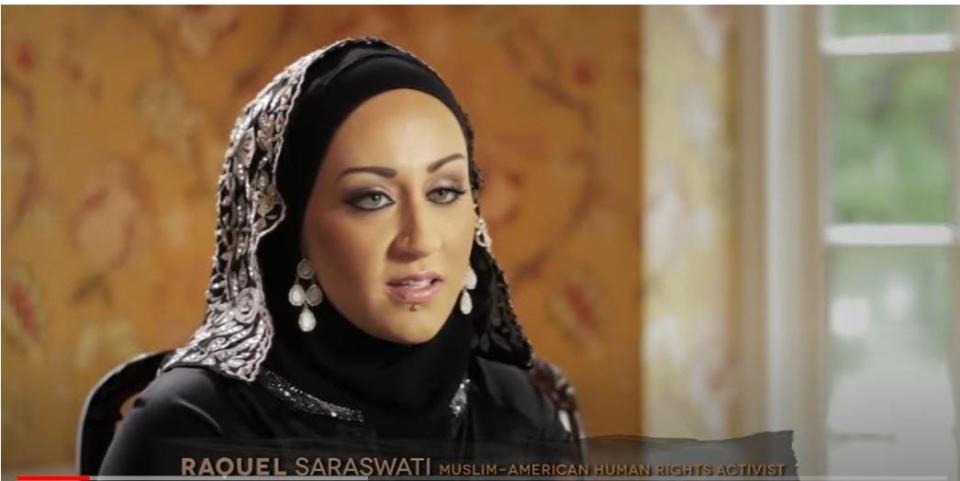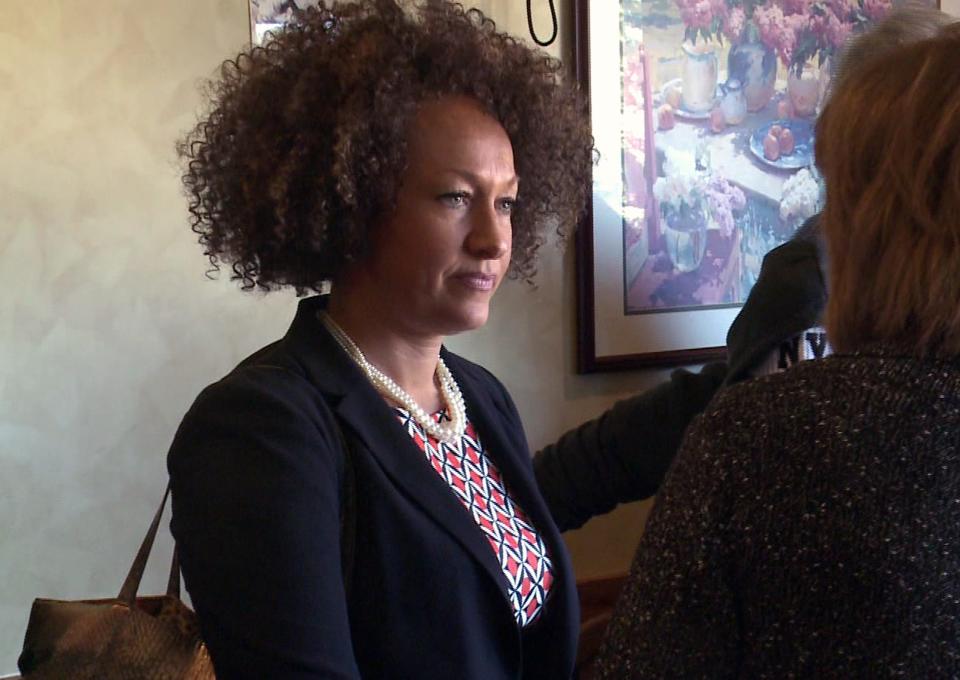Raquel Evita Saraswati, Rachel Dolezal and the scandal of pretending to be another race
A diversity activist allegedly lied about her race and has in turn left her post at a social justice organization – leaving a scandal in her wake.
Raquel Evita Saraswati, the chief equity, inclusion, and culture officer of social justice organization American Friends Service Committee, claimed to be a woman of color of Latina, South Asian and Arab descent, but her mother told The Intercept she is not. This followed an open letter from her peers questioning her background.
Saraswati is not the first to make headlines for this behavior (see Oli London and others). The most visible person in recent years to fake their race was Rachel Dolezal, the former president of the Spokane, Washington, branch of the NAACP who claimed to be Black but is in fact white.
Lying about one's racial or ethnic identity is tricky to unpack without clear motives, but anyone masquerading as another race or ethnic group should understand their actions could be harmful to the communities in question.
When someone dons a culture's lived experience as a costume identity, they do not celebrate that culture – they discredit it, experts say.

The controversy over the term 'transracial'
The term "transracial" has been associated with adoption, as when parents adopt a child of a different race. But in the context of people like Dolezal, whether "transracial" identity applies depends on who you ask.
Rebecca Tuvel, associate professor in the department of philosophy at Rhodes College, discussed the idea of a transracial identity in a 2021 blog post on race and gender identity.
"Sometimes respecting people’s self-identities will imply something rather minimal – that is, not subjecting them to ridicule, calling them crazy, shaming them publicly, etc.," Tuvel wrote.
But others consider the notion of "transracial" to be problematic.
"The very idea of being able to transition to a (different) race discredits trans and gender diverse people’s experiences of gender affirmation," several Australian academics of Edith Cowan University wrote in a 2021 piece for The Conversation. "It also undermines the importance of cultural connections for many communities."

Why people lie about race
It's unclear exactly why many people lie about race. It can be for selfish purposes, like those who claim Indigenous roots for some kind of material gain associated with that identity. Or maybe they are just pathological liars. Or maybe they feel guilty about their whiteness.
"There could be the feeling of estrangement or disassociation with all the baggage that comes with white colonialism," says Deborah Whaley, an English and African American Studies professor at the University of Iowa. "And so perhaps by not identifying in that way, or moving more culturally into other spheres, it can be a way to separate yourself from that history."
In some cases, it could be career-driven. If you are perceived as a minority and want to work for a minority-led organization, this could make you appear more qualified. Religious identities like Islam are sometimes tied to one's racial identity, too.
In other cases, it could be family lore spun out of control. "To what extent is someone intentionally lying or misrepresenting their racial identity? And to what extent is there just a kind of confusion about something that's maybe uninterrogated?" asks Zareena A. Grewal, associate professor of American studies, ethnicity, race and migration and religious studies at Yale University.
Those who identify with Indigenous races but aren't actually of that descent may be mistakenly seeking community.
"In some ways, it's a way to understand American whiteness, it's a way to feel connected, and to make a claim all the way back to the United States," Grewal says. "And It may not be a malicious lie, it may, in fact simply be a family claim."
'It feels like a betrayal'
Many believe lying about race is inherently racist and exploitative.
"When people who are white and have all the privileges of whiteness their entire lives, think they can dip in or play another race when it's to their benefit? That is itself a blatant example of white privilege," Grewal says.
"If race is socially constructed, then why do people basically lose their mind when someone says, 'I identify culturally as Black?'" Whaley adds. "Well, they do that because it feels like a betrayal because it seems like OK, you can be Black when you want to be Black. You can be Middle Eastern when you want to be Middle Eastern. For people who live in those bodies every day, who were born in those bodies and face discrimination, they don't necessarily have that choice."
And how we look affects how we move throughout the world. Grewal adds, "That doesn't mean that it's not politically, materially, socially real in its consequences."
Dig more into race and culture
More on this case: Diversity executive, former FOX pundit, resigns amid claims she lied about her race
Even Martin Luther King Jr. laughed: How Black people coped in the Civil Rights Movement
Interesting: How creators of 'Sesame Street' designed the show to celebrate Black communities
Black Americans' health is in crisis. What will it take for them to be well?
This article originally appeared on USA TODAY: Rachel Dolezal, Raquel Evita Saraswati and masquerading race


